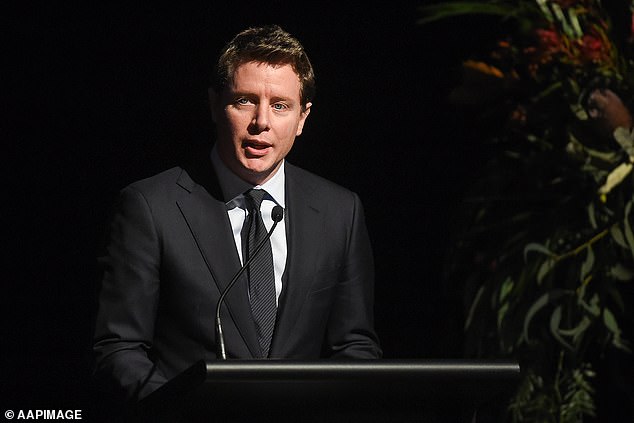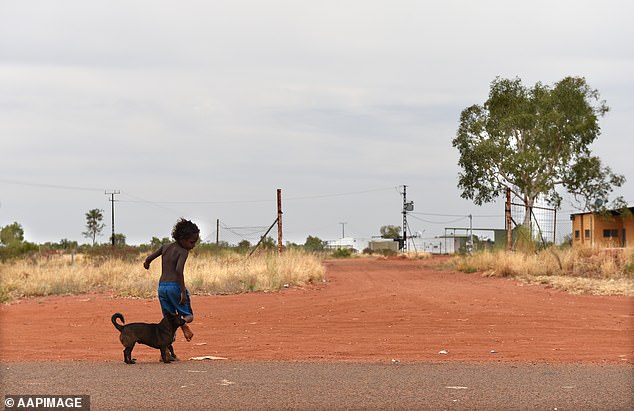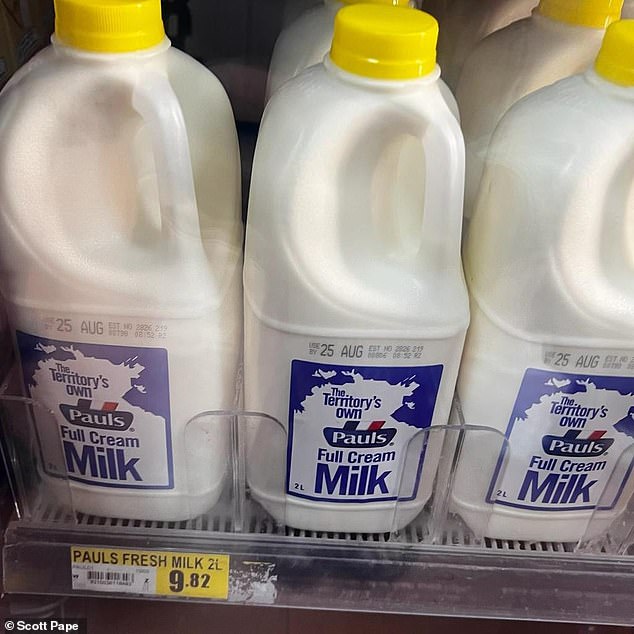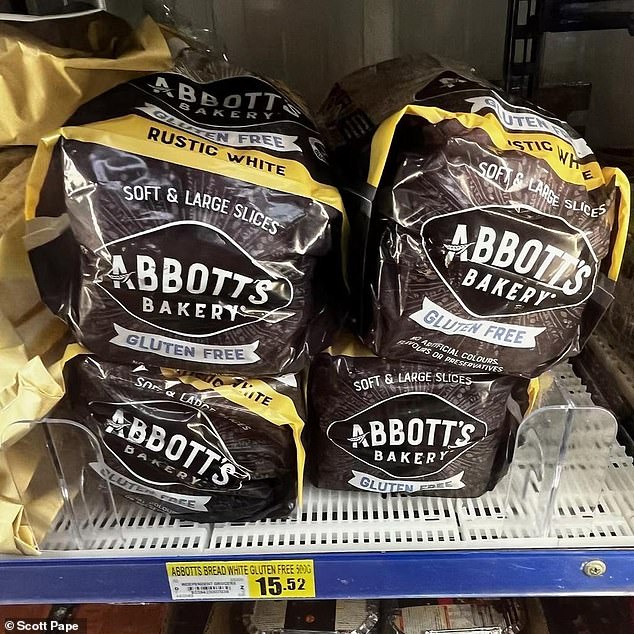Scott Pape stunned during road tripHe visited central Australia with his family
Barefoot Investor Scott Pape has spoken out about the stark divide he witnessed while taking his family on a road trip through central Australia.
The family spent a week at a local school in a remote Aboriginal community, where Pape’s children studied and played alongside Indigenous kids.
The visit came through his brother-in-law, who was on a teaching placement there.
‘The kids went to the local school for the week. They made friends. My footy-mad son reckons he saw some of the best players of his life,’ he wrote in his weekly newsletter.
‘My daughter came home barefoot… because that’s what all the girls did. Kids are kids.
‘Except these kids live in houses with up to twenty people. Often no beds. No fridge.’
‘Sometimes no front door. A place where hardly any adults work, black-market bottles of rum go for a grand, and the only shop sells frozen bread for fifteen bucks and milk for ten.
‘None of this is their fault. Like my kids, they were born in one of the richest countries on earth, but their futures will be shaped by forces they never chose.’
On paper, Australia is one of the richest nations in the world.
Credit Suisse ranks Australians as having the highest median household wealth per adult of any major economy, largely thanks to widespread home ownership and compulsory superannuation.

Barefoot Investor Scott Pape has spoken out about the stark divide he witnessed while taking his family on a road trip through central Australia

In the Northern Territory, more than half of Aboriginal people live in overcrowded housing, with as many as 20 people crammed into a single home
The United Nations’ Human Development Index also places Australia consistently in the global top 10, ahead of countries like the UK, France and Japan.
But those statistics mask the reality in many remote Aboriginal communities.
In the Northern Territory, more than half of Aboriginal people live in overcrowded housing, with some homes in remote Aboriginal communities do house up to 20 people.
Many homes lack basics such as fridges, beds or even working doors.
Everyday essentials are also expensive and in some communities, milk sells for $10 a bottle and bread for $7 a loaf.
During the Wet Season, when roads are cut off, goods must be flown in, pushing prices even higher.
The health gap is just as stark and preventable diseases like diabetes are far more common, and life expectancy in remote Aboriginal communities can be up to a decade shorter than the national average.

In remote communities mik can cost $9.82 for 2litres

Bread can cost $15.52
Share or comment on this article:
Barefoot Investor Scott Pape took his kids on a road trip and what he saw left him stunned
